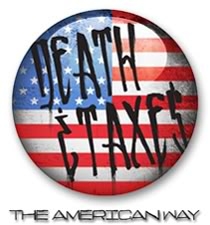What to learn from your 2010 Return
Posted on: April 19th, 2011 by Amy Bolger So your 2010 taxes are done, or they should be if you didn’t file an extension. But, as we all know, nothing is certain except death and taxes, so you might as well start planning for next year. While you actually have your 2010 tax forms and documents handy, this is the perfect time to analyze last year’s finances and use those insights to lower your taxes in 2011. The sooner you get started, the more you can save. Here are 5 easy steps that you can follow to start your saving:
So your 2010 taxes are done, or they should be if you didn’t file an extension. But, as we all know, nothing is certain except death and taxes, so you might as well start planning for next year. While you actually have your 2010 tax forms and documents handy, this is the perfect time to analyze last year’s finances and use those insights to lower your taxes in 2011. The sooner you get started, the more you can save. Here are 5 easy steps that you can follow to start your saving:
1. Avoid a Big Tax Refund
You think it’s fantastic when you get a tax refund, right? Wrong. A refund is really just the return of a year-long, interest-free loan that you graciously extended to that thrifty spender known as Uncle Sam. Even with interest rates in the toilet, earning some money is better than none at all, right?
You can do much smarter things with that money, like putting it into a retirement plan or a college savings fund, or maybe paying down outstanding debt. So if you will be receiving a 2010 refund of more than a few thousand dollars and you’re an employee, adjust your withholding at work. If you’re self-employed, lower your quarterly estimated tax payments accordingly.
2. Save More in Your Retirement Plan
If you are not maxing out your employer-sponsored, tax-deferred retirement plan, you’re missing out on the single best opportunity to save on taxes. The idea of saving more may be difficult, especially as the costs of gas and food are soaring. But if you can squeeze just an extra 1 or 2 percent out of your paycheck and pour that cash into the plan, you’ll reduce your taxable income and your 2011 tax bill.
Doing so might also bring your income under certain thresholds that will let you qualify for bigger tax breaks you’d otherwise miss — such as personal exemptions, itemized deductions, an Individual Retirement Account, the Child Tax Credit, the Child and Dependent Care Credit, and the American Opportunity Tax Credit.
3. Look into Muni Bonds and Funds
If you have money in interest-paying bank accounts, CDs, money market funds, or taxable bonds or bond funds, you could be adding to your tax liability. High-income taxpayers need to be especially concerned, since their tax liability could rise with the 2012 expiration of the Bush-era tax cuts. You may want to consider moving some of those taxable savings and investments into tax-free municipal bond funds. (Yes, those same bonds that Meredith Whitney trash-talked on “60 Minutes.”) Since that time, investors have been bailing out of municipal bonds, fearing that states, towns and municipalities could default on their obligations. That exodus has forced prices down and yields up.
4. Lower Your Mutual Fund Taxes
Now that stock and bond markets have recovered from their bear-market lows, be on the lookout for mutual fund taxable distributions. A distribution is one of the most aggravating features of a managed mutual fund: You are on the hook for capital gains on the fund’s investments as well as the fund’s tax liability. You may even be taxed on gains the fund incurred before you owned it! One way to limit the damage before you invest is to ask the fund company if it will be making a distribution soon. If the answer is “yes,” hold off buying until afterward. Or you might invest in funds with low turnover ratios, such as index funds, since they’ll be less likely to throw off taxable distributions. A turnover ratio below 10 percent is generally tax-efficient.
5. Keep Better Tax Records
Organizing your tax records might not only lower your tax liability, it could help you get rid of the tax-filing headache sooner. Create a file called “Taxes 2011” and throughout the year toss all your paperwork into it: business receipts; bank, brokerage, and mutual fund statements; W-2s; 1099s; property tax bills; and mortgage interest statements. Also keep track of your purchase price, commission, and sales price for any investment transactions in 2011. You’ll be much happier come April 2012.
And while you’re in the organizing groove, now is the perfect time to purge your files of unnecessary statements and documents. Get ready to shred!


